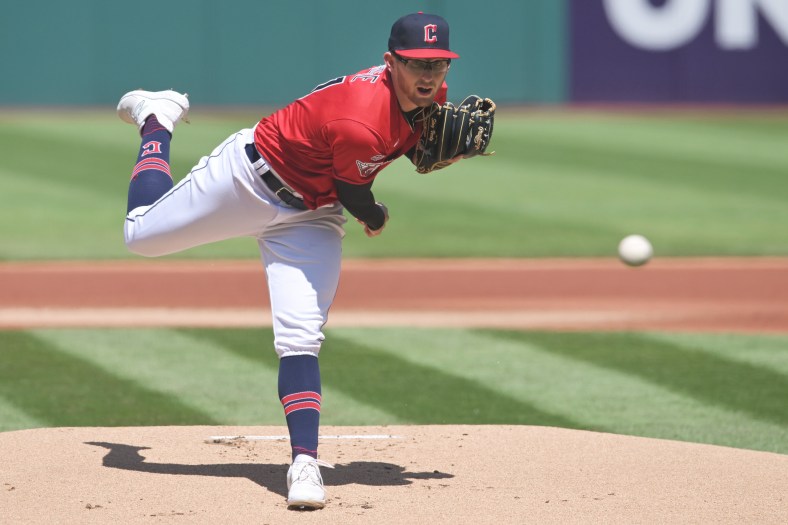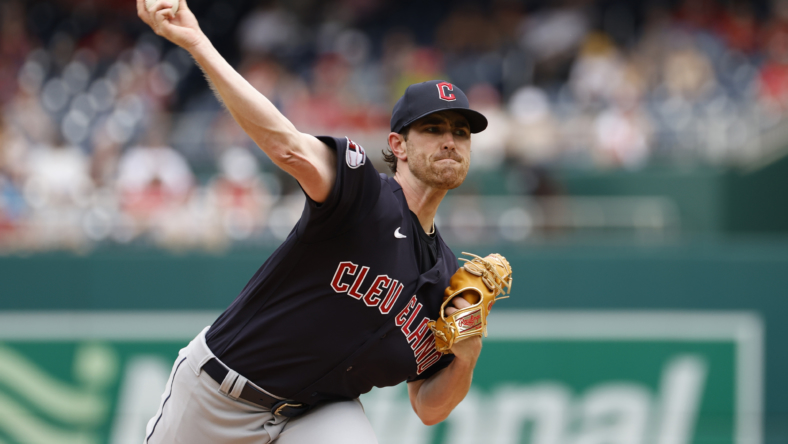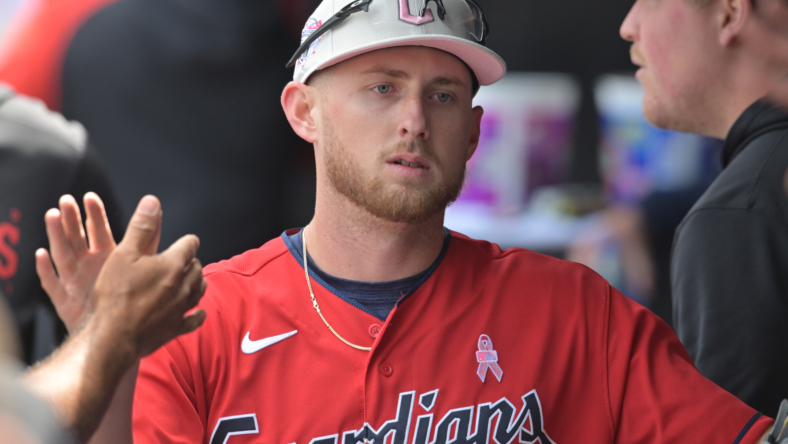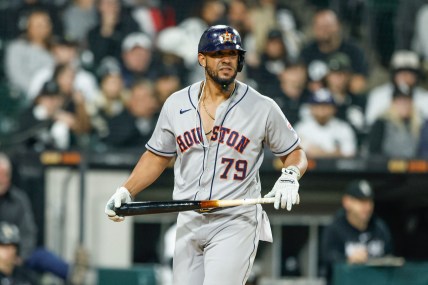
If the Cleveland Guardians make a run at a repeat championship in the American League Central, rookie Tanner Bibee probably will have something to say about it.
And if that’s the case, it means Corey Kluber, Cliff Lee and CC Sabathia also will have played roles in the Guardians’ success this year. Never mind Shane Bieber.
“Yeah, the track record definitely helps,” said Bibee, 24, who beat the Colorado Rockies in his April 26 debut on the heels of a 2-7 Guardians slide.
He takes a four-start ERA of 3.22 into his next start, Saturday in New York against Mets ace Max Scherzer — fresh off a dominant 7 2/3 innings against the Los Angeles Angels that included two strikeouts of Shohei Ohtani.
Bibee is exactly the kind of player that has made the small-spending Guardians a recurring contender over the past decade or so, one of five rookies to debut so far this year after a 2022 in which 17 debuted on the way to the division title, a first-round playoff series win and a five-game heartbreaker series loss to the New York Yankees.
“Our pitching people have done a really good job of developing pitchers,” Guardians manager Terry Francona said. “It’s part of how we’ve stayed competitive.”
Cleveland Guardians’ pitching factory

That obviously starts with identifying, acquiring and developing pitchers such as their 1998 first-round pick, Sabathia, out of Vallejo (California) High School; or Cliff Lee, who was acquired as a Double-A pitcher from the Montreal Expos in the 2002 Bartolo Colon deal; or Bieber, who was drafted in the fourth round in 2016 by Cleveland, a few months before Kluber — acquired six years earlier as a minor-leaguer in a three-team trade — won both his World Series starts for Cleveland against the Chicago Cubs.
This is what Bibee means by “track record.”
Because this is where the Guardians mean business and have for most of Bibee’s life — producing more Cy Young Awards (five) this century than any other franchise and more pitchers who have debuted with the club and gone on to win at least one with the team (four).
All of those have come since 2007:
- 2007 — CC Sabathia (debuted with Cleveland 2001)
- 2008 — Cliff Lee (debuted with Cleveland 2002)
- 2014 — Corey Kluber (debuted 2011)
- 2017 — Kluber
- 2020 — Shane Bieber (debuted 2018)
That doesn’t count Trevor Bauer, who was acquired as a minor-leaguer from the Arizona Diamondbacks in a three-team trade in 2012, debuted with Cleveland in 2013 and won a Cy Young with the Cincinnati Reds in 2020.
Or Bartolo Colon, an original Cleveland signee and workhorse ace for the team before winning a Cy Young in 2005 with the Angels.
Or Tim Lincecum, the San Francisco Giants’ two-time Cy Young winner, who was drafted by Cleveland in 2005 but did not sign, eventually drafted and signed the next year by the Giants.
“I think when you’re going through the whole process you’re not really thinking about all that stuff,” said Bibee, a fifth-rounder out of Cal State-Fullerton in 2021. “Obviously, you know how great all those guys are. You know obviously that they’ve come through and really succeeded and become like Cy Young guys, like best-pitchers-in-the-league kind of stuff.”
But it certainly doesn’t hurt the messaging when each new, young pitcher comes through the Guardians’ pitching system — a developmental infrastructure so renowned within the industry that it became a decisive factor in Chicago Cubs president Jed Hoyer hiring Cleveland assistant Carter Hawkins as his general manager after the 2021 season.
Bibee can tell you that much.
“If I was on a different team that historically wasn’t as good developing pitchers, I feel like there’d be a little bit more doubt,” he said. “But everyone here knows what they’re talking about. Everyone here is on the same page. We all want the same thing.”
And even if he doesn’t yet have the experience to possibly know the difference, he seems certain of that. And that’s the point.
‘It’s not like they’ve cookie-cuttered it’

The Guardians have a pitch lab, just like everyone else does. They diagnose body types and mechanics and try to coach changes to match those up for best individual pitches and results, like almost everyone else.
“It’s not like they’ve cookie-cuttered it,” Bibee said. “Like, Kluber’s a different pitcher than me, than Bieber, than Sabathia and all those guys. They kind of know how to identify talent and how to maximize what that person can do.”
Again, he can’t possibly know that relative to the 29 other teams. But the standard-setting results that have come before him make it seem certain.
And that might be as key a part of the Guardians’ brick-by-brick success in developing championship-quality young pitchers — and, by extension, teams — as any of the actual diagnostics and applications out of the so-called labs.
The belief. The almost immediate buy-in.
“You’ve got to trust they’re doing what’s best for you,” Bibee said. “Because if there’s a little bit of doubt, then it kind of topples over a lot of other stuff, whether it’s developmentally, mentally, stuff like that.”
Francona is in his 11th season with the franchise and is quick to say, “We don’t have all the answers. We know that.”
He describes the system as “partnering with our players” in sharing what’s worked but in a way that focuses on the individual pitcher and person.
“The pitchers are the ones that have to go do it,” he said, “so we try to partner with them, because if they understand why they’re being asked to do something, they’re going to maybe do it with more conviction, more belief.”
And if you know it’s coming from the same fountain of pitching methodology that launched Kluber and Bieber, it can’t help but make the message resonate, if not accelerate the process, right?
“I’m sure it probably could,” Francona said. “But a coach or a manager has experience, and you earn your stripes every day. You can’t just say, ‘We did this for Corey Kluber, so shut up and do this.’ We don’t work like that.
“We partner with the players, and we try to have good reasons for what we do. We don’t throw shit against the wall and hope some of it sticks.”
Maybe that’s all part of why it’s worked at such a high level so much more often than a lot of other places.
And once that happens, once and then twice, maybe those results themselves become an added reason it happens a third time and then a fourth.
“For me, if you’re not 100 percent really bought in to what you’re working on off the field, I feel like buying into what you’re doing on the field can be this much harder,” Bibee said, holding his thumb and forefinger an inch apart. “That little bit can be the difference between a strikeout or a home run.”
Gordon Wittenmyer covers Major League Baseball for Sportsnaut. You can follow him on Twitter at @GDubCub.
